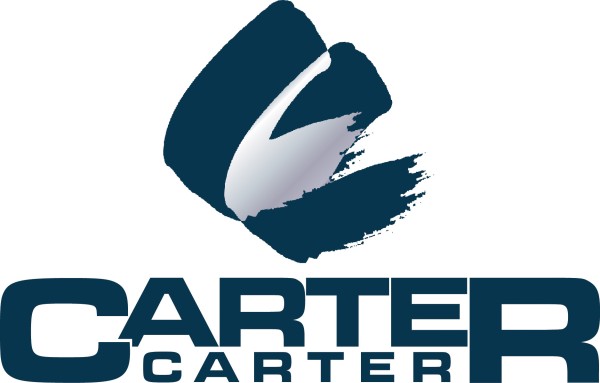GENERAL POLICY:
To accomplish business of the Company, it is necessary for some employees to incur business expenses principally in the form of travel, lodging, and meals. Carter & Carter recognizes that all such reasonable and necessary expenditures by the employee on behalf of the Company are not the personal expenses of the employee and are reimbursable on an expense account basis or through an M&IE allowance. Employees traveling on company business may use a company credit card for the reasonable cost of lodging, transportation and meals. All non-routine travel must be approved by the President in advance.
The primary purpose of an expense account is to account for necessary and reasonable business expense incurred in the conduct of Company business by the employee in such a manner as to meet the Company and the Internal Revenue Service requirements. Please consult your job description or supervisor regarding the proper reimbursement procedure for your assignment. If you are receiving M&IE allowance many expenses mentioned below will be covered by this allowance and it may not be necessary to submit an expense report.
It is a policy of Carter & Carter that expense accounts are not to be considered as a means of providing supplemental income for any employee. It is a basic policy of the Internal Revenue Service that an employee need not include in his/her income for tax purposes an expense allowance or reimbursement, provided:
- It does not exceed legitimate and necessary business expenses;
- That he/she accounts to his/her employer in accordance with acceptable business practices. If not so accounted, the employee must report in his/her personal tax return both the amounts received and the expenses incurred, and the burden of justifying the reimbursement as nontaxable is the employee’s.
The detailed and documented reporting by the employee to the employer which is necessary to be acceptable as good business practice is also the record upon which the Company relies for substantiation of business expenses as a basis for corporate tax deduction.
This policy is applicable to all employees of the Company, regardless of the degree of individual responsibility or authority of the person involved. A further intent of the policy is to set out the
specific rules and procedures which are to be followed to secure uniformity in reporting and substantiating.
TRAVEL PLANNING:
All travel requiring use of airplanes is to be adequately planned in advance so as to take advantage of transportation discounts and availability of moderate hotels. All bookings will be completed by the HR Administrator.
TRANSPORTATION:
The employee may select the means and time of travel, within the general practices established by this policy, which will result in the least total cost to the Company. As is the normal procedure, Carter & Carter will take advantage of all possible economic savings, such as advance reservations, round trip tickets, discounts, and special fares.
An employee will be reimbursed for automobile travel expenses incurred in the performance of Company business, whether it be for a self-owned or a rental auto. Commuting to and from work is not performance of Company business.
The use of taxis should be kept to a minimum. Usually airport/hotel limousines and buses are the least expensive and should be used unless time consideration indicates use of a taxi or several employees share a taxi at a lower total cost.
PERSONAL AUTOMOBILE USE:
A personal automobile may be used for Company business when the cost of using a personal car is less than a public carrier or a rental car. The standard mileage rate for the use of a personal car without an allowance will be $0.54 per mile when traveling to a jobsite that’s over 60 miles away. If you are given a Truck Allowance or have a rental car, you will only be reimbursed the cost of gas when traveling to a jobsite that’s over 60 miles away. No additional reimbursement will be made for repair or upkeep bills. Please consult your job description or supervisor regarding the proper reimbursement procedure for your assignment.
The personal vehicle must be insured for at least the minimum amounts established by the State of Alabama, of bodily injury liability and property damage liability.
The Company must be notified immediately of any accident which occurs in connection with the use of a personal automobile for business transportation.
Local transportation or commuting expenses of an employee in making the trip to and from home to his/her regular work location are personal expenses and are not to be reimbursed by the Company.
RENTAL CAR USE:
Due to the cost of rental cars, discretion should be used in requesting and approving their use. Renting a car is permissible only when other adequate transportation is not available or the total combined cost of local transportation would be greater. Rental car use should not exceed 3 consecutive days. If a rental car is needed for more than 3 days, supervisor approval is required. As is the normal procedure, a personal automobile may be used for Company business when the cost of using a personal car is less than a public carrier or rental car. Below is a list of guidelines which should be adhered to when a rental car is utilized:
- Rental cars are to be reserved in advance to assure the desired rental rate and size of auto.
- Employees are to request no larger than a “mid-sized” auto unless specific conditions and/or cost justify a larger vehicle.
- Employees traveling together should share a rental car.
- When renting autos, employees should not request insurance coverage (collision deductible waiver and personal accident coverage), as the corporate insurance policies provide for this coverage.
- Rental cars should be refueled at gas stations with competitive prices before returning the car to the rental agency.
AIR TRAVEL:
All employees will use tourist, coach, economy or the least expensive accommodation and carrier for air travel. An employee will not upgrade his/her flight accommodations to first class after reservations have been approved except as a personal expense. All bookings for air travel will be completed by the HR Administrator.
COMBINATION TRIPS:
Occasionally a trip may combine business and personal purposes with a mutual advantage to the employee and the Company. If combining personal travel with a business trip increases travel expenses, the trip must be:
- Approved by the President prior to making any arrangements;
- Payment of any increased difference will be the employee’s responsibility;
- The written approval must be attached to the Expense Report;
- Any expenses for the employee’s personal benefit are not reimbursable.
LODGING:
Should be booked in advance at the best possible reasonable rate. Standard rooms in a moderate hotel are the standard policy. Luxury hotels are to be avoided unless they are associated with a meeting or convention which is being held at that location.
Room reservations will be made in advance with a guaranteed rate. Guaranteed hotel reservations should be requested if arrival will be after 6 p.m. It is the traveling employee’s responsibility to assure that the reservations are canceled prior to 6 p.m. if travel plans change; otherwise, the Company will be billed for one night’s stay and the employee will be required to reimburse the Company. All bookings for lodging will be completed by the HR Administrator.
MEAL EXPENSES:
This only applies if you do not have a living allowance and are traveling to a jobsite that’s over 60 miles away.
Meal expenses are considered as food and beverages consumed while on Company business and they are reimbursable in the amount spent, if this amount is reasonable. Each employee should pay, report, and be reimbursed for his/her own meal expenses. However, in the event two or more employees are having a meal together, the senior employee will pay the entire meal expense.
The Company will reimburse the employee for a reasonable amount incurred for meals while hosting a business associate(s). The IRS regulations have outlined the following requirement:
The business meal should be conducted in a setting such as a restaurant, hotel dining room, eating club or a similar place where the surroundings and atmosphere are conducive to the discussion of business and at which a bona fide discussion actually takes place. Business meals are not primarily to serve a social or personal purpose.
For reimbursement of business meal expenses, the Expense Report must show date, location, names of business affiliates or guest, nature of business discussion, and the amount of the expense. A receipt for all items must be attached to the Expense Report.
For this purpose a “reasonable amount” should not exceed $51/day or $20/meal. While hosting a business associate(s), meals exceeding this limit must be pre-approved. Business associate(s) includes Owners, Subcontractor’s, Co-Workers, etc. Employees are expected to exercise restraint and good judgement when incurring expenses.
ENTERTAINMENT:
In accordance with the IRS regulations, entertainment expenses are only reimbursable if there is a direct immediate benefit to the Company or if directly preceding or following a bona fide Company business discussion. Supervisor approval must be secured prior to incurring entertainment expenses. The following information must be entered on the Expense Report to receive reimbursement for entertainment expense:
- Date
- Amount expended
- Place of entertainment (name) and description of entertainment if not obvious from name
- The date, nature, and place of business discussion or the direct benefit to be derived by the company
- The names, affiliations, and positions of the participants in the business discussion
- Names of persons entertained who did not participate in the discussion
EXPENSE REIMBURSEMENT:
You are required to report on an Expense Report form any business expenses you incur in transacting Company business including those expenses:
- Charged on Company credit card or Company account and paid directly by the Company.
- Charged on Company credit card and paid by the employee.
- Paid by cash.
- Paid by personal check.
- Charged to a personal credit card.
- Charged on a deferred bill personal credit basis.
Expense Report should include: Why, Where, When, and Who. Detailed receipts are required for all expenditures. It will be the approving Supervisor’s responsibility to assure that all expenses are documented by receipts.
It is very important that all travel charges be included on Expense Reports. This includes not only charges for which the employee is directly responsible, but also any charges incurred by the employee which will be billed directly to the Company. The IRS may disallow expenses which are not fully documented with supporting receipts and/or explanations. Deductions disallowed by the IRS may be considered as income to the employee for tax purposes.
Expense Reports should be submitted bi-weekly to the Controller on the Monday prior to payday. Reports may be filed as frequently as weekly when justified by the volume of expenditures or when sizable amounts are due the employee. When completed, the Expense Report with receipts attached will be approved by the employee’s Supervisor.
GRATUITIES:
To be reimbursable, gratuities must be reasonable and connected only with regular service.
MISCELLANEOUS EXPENSES:
An employee on Company business may incur an expense which is not covered in these policies. He/she should enter it under “Other” on the Expense Report with an explanation and attach a receipt. Such unusual items should be specifically authorized and approved by the employees’ Supervisor.
Please Note: If you are receiving an monthly allowance/per diem many expenses mentioned will be covered by this allowance. Any expense that does not meet the guidelines stated above or in the Employee Handbook will be rejected and may be subject to repayment from the employee’s payroll. Any additional expenses not mentioned are not covered.



Post your comment on this topic.